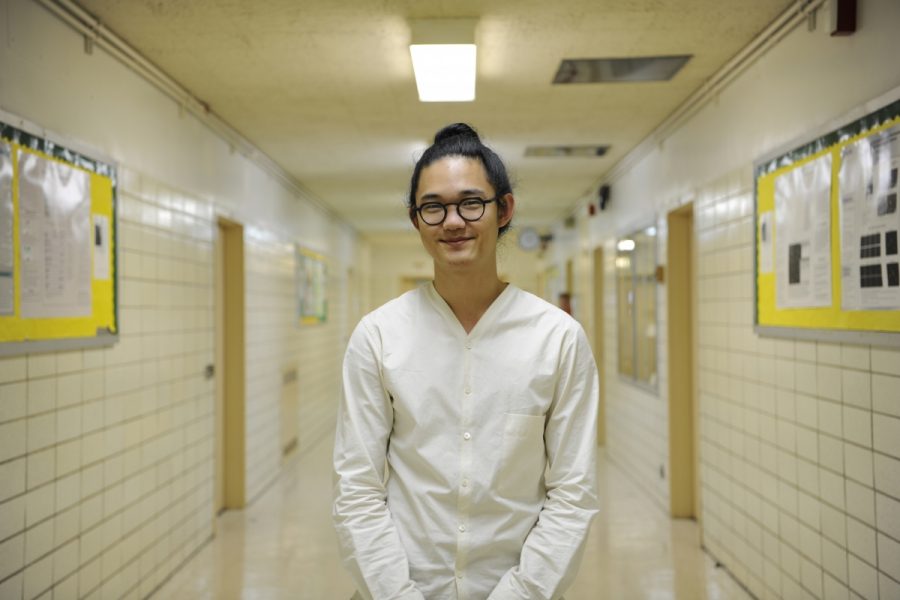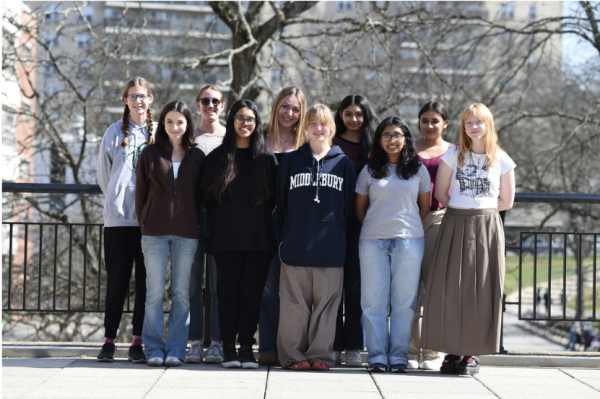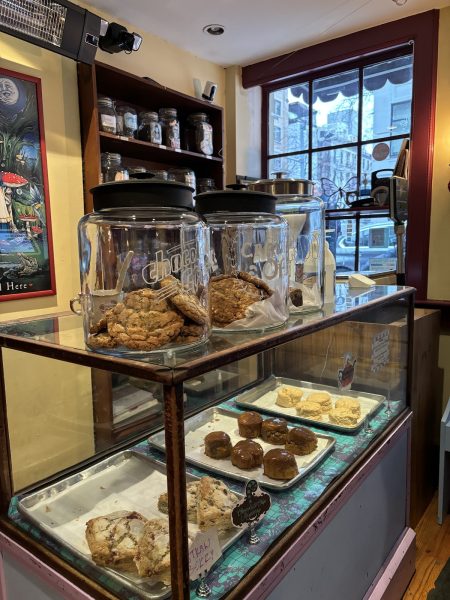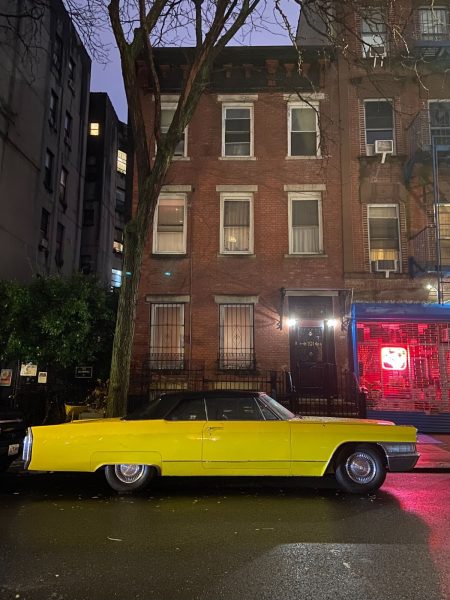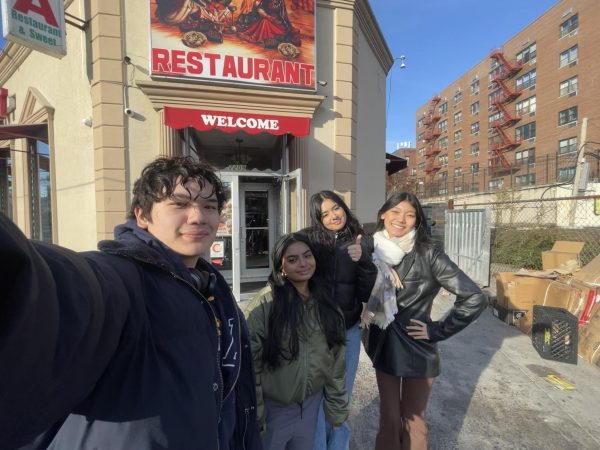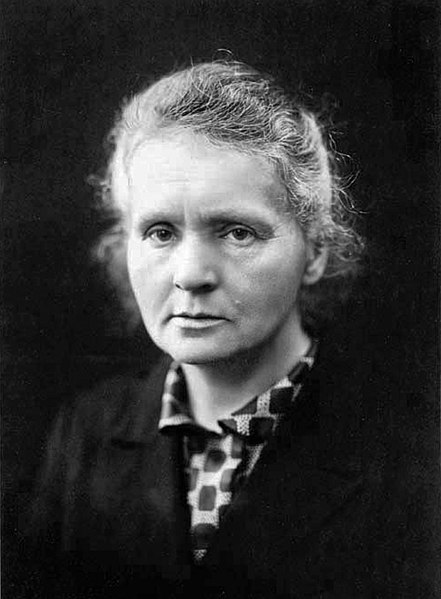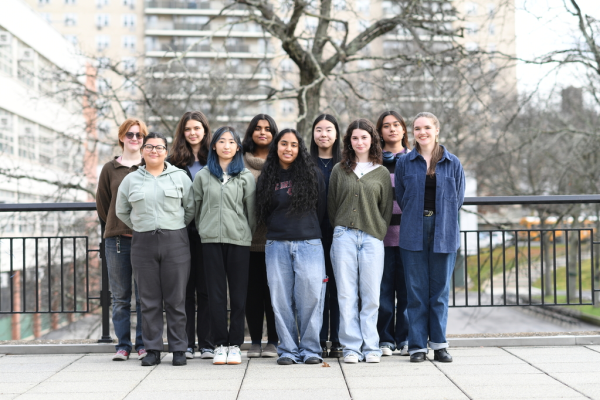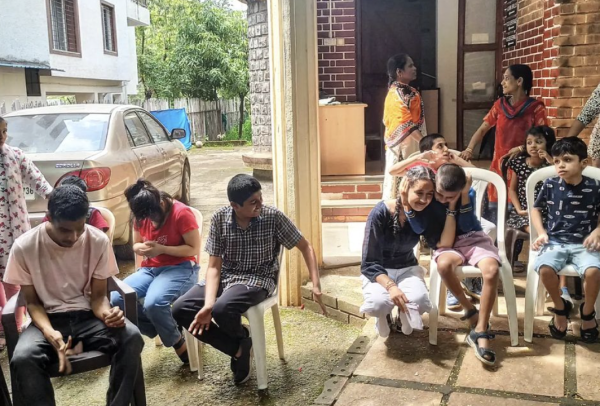…Now What?
A Look Into What Advanced Placement Classes Do Once the Exams are Finished
A.P. Physics and A.P. Art History teacher Mr. Seoh has his students write haikus before preparing for the Physics Regents.
We all know the importance of preparing well for an Advanced Placement exam and the time crunch that teachers face in order to get all the material in before the AP testing weeks in early May, but once the tests are over and done, what do these teachers do during their classes?
A variety of answers were given, when students were asked about what happens in Advanced Placement classes once exams are over. Some teachers, however, have found a balance of “fun” and “learning.”
A.P. Physics teacher Mr. Seoh decided to do something a little different, opting to have his students write haikus after their exam. “I like haikus, because they seem to be calming both to write and to read, and I thought it would be a nice activity with which to wind down, especially immediately after the A.P. Exam,” said Mr. Seoh.
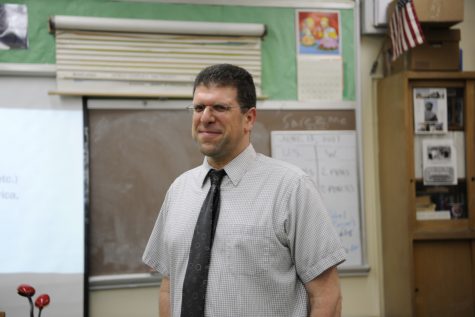
History teacher Mr. Symons tries to keep things fun in class and has his students watch excerpts from historical movies after Advanced Placement exams’s are done.
Although his classes will have to continue learning the material on the Physics Regents exam that is not covered by the AP exam, Mr. Seoh felt that it was equally important for his students to have a break, for one day at least. “While writing haikus doesn’t directly relate to the subject, I’ve found that students come up with creative ways to express certain physical quantities to meet the syllable constraints of a haiku, and this is a crucial practice that anyone writing science for a general audience does regularly” explained Mr. Seoh.
Senior Chevy Chen described creating board games in Ms. Pettenon’s AP Chemistry class during his sophomore year. He said, “We made chemistry board games such as the game of life, or bonds and electrons in lieu of snakes and ladders.” He also mentioned making presentations in his A.P. U.S. History class on topics such as the 9/11 conspiracy, and reflecting on the past year in his A.P. Physics class by writing haikus. “Teachers and students alike love to take a few days and celebrate that they’re done with the curriculum, and I think it’s a great way to destress,” he concluded.
In the History department, sophomore A.P. World and junior A.P. U.S. History teacher Mr. Symons has his students vote on a historical movie to watch in class. “Last year, my students voted for ‘Selma,’ which tells of the struggles of Martin Luther King, Jr. and his followers as they tried to get the Voting Rights Act passed in 1965.”
“I think it’s important to try to make class ‘fun.’ Any time that students can enjoy themselves while they are learning, it is better for everyone involved,” said Mr. Symons.
Mr. Symons is a big movie fan, and had shown movie clips in class to illustrate concepts taught in class or were historically significant during different points in history, such as Gone With The Wind and Glory. Mr. Symons also helps students to study for the Global and U.S. History Regents by playing games such as Jeopardy and Scattergories to refresh students’ memories on the material they learned before the A.P.’s. “I think it’s important to try to make class ‘fun.’ Any time that students can enjoy themselves while they are learning, it is better for everyone involved,” said Mr. Symons.
Bridget Kulcsar is a Managing Editor and Copy Chief for ‘The Science Survey’ and an Academics Reporter for ‘The Observatory.’ Bridget is in her...

